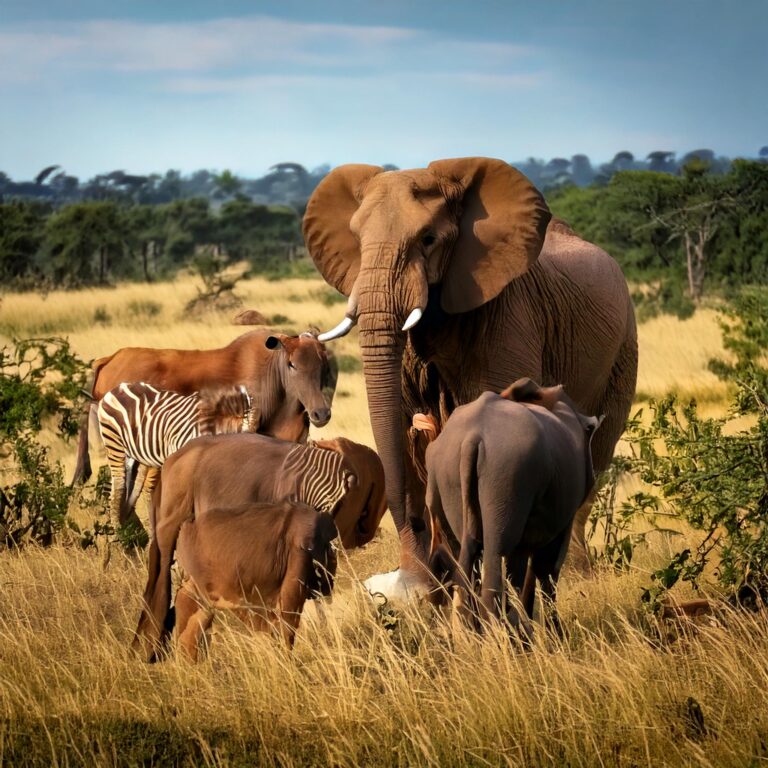Let’s talk wildlife conservation! Today, we’ll explore the urgent issue of wildlife crime in South Africa. You know, it’s not just about saving cute animals (although that’s important too!). It’s about protecting our planet’s biodiversity and preserving the incredible eco-tourism industry that brings so much joy to visitors from around the world.
Recently, Dr. Dion George, South Africa’s Minister of Forestry, Fisheries, and the Environment, spoke at the United for Wildlife Global Summit in Cape Town. He really drove home the point that we need to take action now to stop these wildlife crimes. It got me thinking about how each of us can play a part in this important cause.
The Role of the Department of Forestry, Fisheries, and Environment (DFFE)
Let’s chat about the DFFE for a moment. These folks are the unsung heroes working tirelessly to protect our natural heritage. They’re not just focused on South Africa; they’re collaborating with partners around the globe to tackle environmental crime. It’s like they’re the environmental version of the Avengers, assembling a team to save the world!
I remember chatting with a DFFE ranger once during a safari trip. The passion in his eyes when he talked about his work was truly inspiring. It made me realize how crucial their role is in both national and international efforts to combat these crimes.
Key Stakeholders in the Fight Against Wildlife Crime
Now, you might be wondering, “Who else is involved in this fight?” Well, it’s quite a team effort! We’ve got the police, customs officials, prosecutors, and various environmental agencies all working together. It’s like a big puzzle, and each group brings a unique piece to complete the picture.
I once had the chance to observe a training session for customs officials at a port. It was eye-opening to see how they’re taught to spot signs of wildlife smuggling. It drove home the point that we need a coordinated, multi-agency approach to tackle this issue effectively.
Wildlife and Marine Life Under Threat
Alright, let’s talk about who we’re fighting for. South Africa is home to some amazing creatures that are sadly under threat. We’ve got rhinos, lions, and pangolins on land, and our oceans are teeming with diverse fish stocks. Each of these species plays a crucial role in maintaining the delicate balance of our ecosystems.
I’ll never forget the time I saw a rhino in the wild for the first time. Its majestic presence and gentle demeanor left me in awe. It breaks my heart to think that these beautiful creatures are being hunted to near extinction. We need to act fast to protect South Africa’s unique biodiversity before it’s too late.
Impact on South Africa’s Eco-Tourism and International Reputation
Let’s face it, folks – wildlife crimes aren’t just bad for the animals; they’re bad for business too. South Africa’s eco-tourism industry is a big deal, bringing in visitors from all over the world who want to experience our natural wonders firsthand.
I’ve met so many local guides and small business owners whose livelihoods depend on eco-tourism. When wildlife crime threatens our animals, it threatens these hardworking people too. Not to mention, it tarnishes South Africa’s reputation as a guardian of natural heritage. We’ve got to protect our furry, feathered, and scaly friends not just for their sake, but for the sake of our communities and economy too.
National Integrated Strategy to Combat Wildlife Trafficking
Now, here’s some good news: South Africa isn’t taking this lying down. We’ve got a national strategy to fight wildlife trafficking, and it’s pretty impressive. The goal is to create a well-resourced, integrated approach to break down these wildlife trafficking networks.
Think of it like a chess game. We’re not just moving one piece at a time; we’re coordinating all our moves to outsmart the opponent. This strategy is crucial in fighting transnational organized crime. It’s not just about saving animals; it’s about dismantling criminal networks that threaten our society as a whole.
International Collaboration and the UN Resolution
South Africa isn’t fighting this battle alone. We’re joining forces with countries around the world. Recently, there was a UN resolution on environmental crimes that South Africa fully supported. We’re partnering up with countries like Brazil, France, and Peru to tackle this issue head-on.
But here’s the thing – we need to work closely with Southeast Asian countries too. That’s where a lot of the demand for these illegal wildlife products comes from. It’s like trying to stop a leak; you need to address both the source and the destination to really solve the problem.
Addressing Root Causes: Poverty and Alternative Livelihoods
Now, let’s talk about something that often gets overlooked in these discussions – the human factor. The sad truth is that poverty and lack of opportunities often drive people to participate in wildlife crimes. It’s not right, but it’s a reality we need to address.
I’ve seen firsthand how providing alternative livelihoods can make a huge difference. In one community near a national park, a project to train locals as eco-tour guides has not only provided jobs but also fostered a sense of pride in protecting local wildlife. By addressing these root causes and providing economic opportunities, we can reduce the appeal of the illegal wildlife trade and strengthen our conservation efforts.
Remember, friends, we’re all in this together. Every action, no matter how small, can make a difference in protecting our precious wildlife. Let’s stand united in this fight for our planet’s future!

